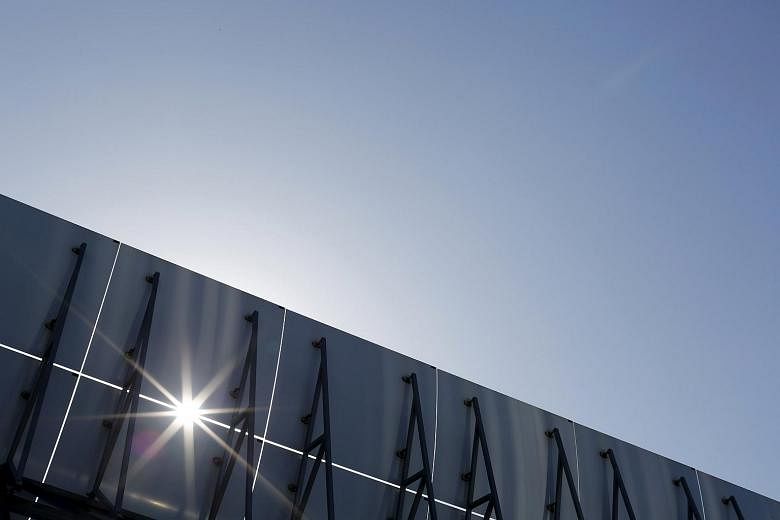Australia is tipped to undergo a solar power revolution, with experts saying it could soon be cheaper to generate a home's electricity using solar energy than via the traditional grid.
A report by Climate Council, a non-government organisation, found that by 2018, using solar panels with new efficient batteries could make it cheaper to produce home-made electricity than to buy it. With battery storage capacity expected to rapidly increase in the coming years, it said half of the nation could adopt solar and move "off the grid".
The potential shift was welcomed by Australian Prime Minister Malcolm Turnbull, a strong advocate of action to combat climate change.
"The pace of improvement in the efficiency of solar panels has been quite remarkable," he told reporters this week.
"Now what we're starting to see is affordable storage, which has always been the problem with intermittent renewables. That is to say, things like wind and solar generate power only when the sun is shining or the wind is blowing. So the improvement in batteries is a big game changer."
The Climate Council report, released on Oct 20, followed plans by two of the world's biggest battery storage companies, Tesla and Enphase, to launch their home battery systems in Australia.
Tesla's lithium ion battery, due to be delivered to homes by the end of the year, could reportedly cost as little as A$4,200 (S$4,196).
The council said that if a battery system were to cost, say, A$10,000, half of all homes could move off the grid and they would make the money back within a decade.
The domestic market would be worth about A$24 billion and would pave the way for transformation of the electricity industry around the world.
These numbers could grow if the batteries prove to be even more efficient and cheaper than expected.
"Australia is expected to be one of the largest markets for battery storage due to the high cost of electricity, the large number of households with solar panels and Australia's excellent solar resources," the council said.
"Together with rooftop solar, battery storage presents an opportunity for Australian households to use a much greater proportion of the solar photovoltaic (PV) electricity they generate and minimise the need to purchase expensive electricity from the grid."
Australia currently has the highest rate of household solar panel use in the world - at 15 per cent of all homes - compared with 7 per cent in Belgium, the second highest.
More than 1.4 million Australian homes have panels installed, with the rate as high as 60 per cent of homes in some suburbs.
A new suburb with 4,200 homes to be built in the capital city, Canberra, will be the first in the nation where all homes have solar panels .
An expert on environmental economics at Sydney University, Associate Professor Tihomir Ancev, said cheaper batteries could eventually lead to "profound" changes in the nation's energy use.
"These batteries are the missing link in the solar energy market," he told The Straits Times.
Dr Ancev said Australian cities have large numbers of people living in stand-alone houses which make them particularly suited to the uptake of solar panels.
But he noted that the battery-led changes will have little effect on the type of energy used by businesses or by those in apartment blocks and high-rises.
"We are still talking about a relatively small proportion of the energy supply but it will be a significant help and will introduce these technologies on a wider scale. It will be evidence that we can operate with these much, much cleaner technologies," he said.
The high take-up rate in Australia followed incentives and subsidies by the former Labor government but these have since largely been phased out.
Australia has been debating the mix of energy it should be striving for, following the government's appointment of Dr Alan Finkel as new Chief Scientist, a high-level adviser on science, engineering and innovation.
"My vision is for a country, a society, a world where we don't use any coal, oil, or natural gas because we have zero-emissions electricity in huge abundance," Dr Finkel said. "But you can't get there overnight."
Adding to Dr Finkel's comments, an open letter by 61 prominent Australians, including economists and scientists, called for a global ban on new coal mines ahead of the Paris climate talks next month.
Despite welcoming the advent of cheap renewables, Mr Turnbull dismissed the call, insisting that coal remained a crucial source of the world's energy mix.
"Coal is... the largest single part of the global energy mix," he said. "And likely to remain that way for a very long time."

